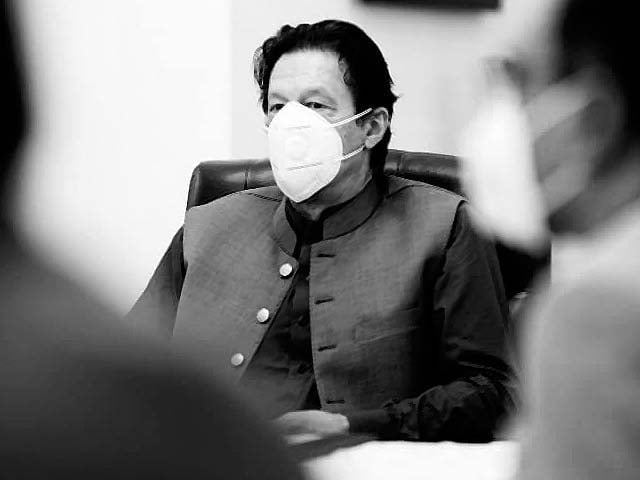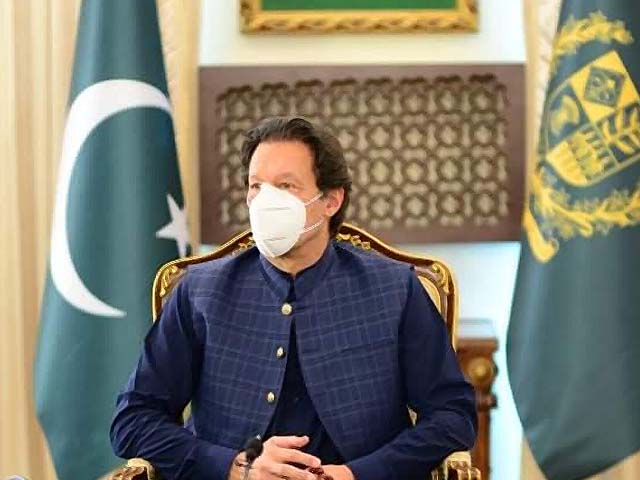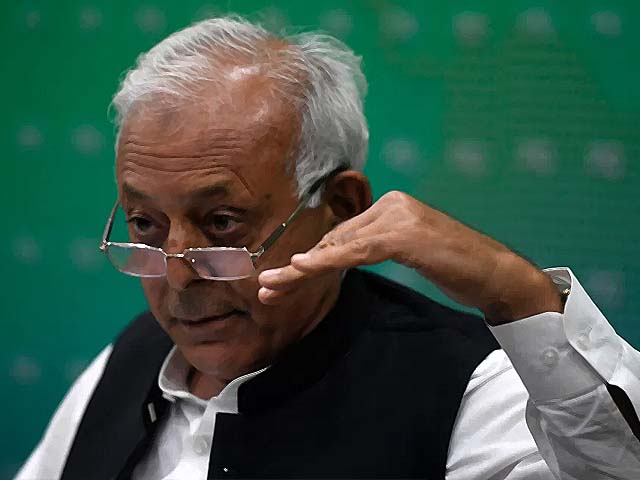
A matter rumoured to be all over a cow, it ultimately led to a complaint from Azam Swati and the removal of the Islamabad IGP Jan Muhammad.
In the case of common man vs misuse of power, history will remember which side Imran Khan chose
A party that can't implement merit or respect law cannot be expected to implement merit and justice across the...
Hardly a day goes by without the incumbent government making a mockery of itself with its own poor decision-making. The latest in line of a string of controversies came through its the decision to transfer the Islamabad Inspector General Police (IGP) Jan Muhammad, which came straight from the premier’s office.
Getting directly involved in the bureaucracy yet again without proper procedure has proved that behind the face of the Naya Pakistan resides the same old face of power politics and nepotism. After all, this recent transfer is rumoured to be all over a cow. It all began when a neighbouring family’s cow trespassed onto land belonging to Minister for Science and Technology Azam Swati, which angered his son. He then threatened the poor family with armed guards (who allegedly opened fire) and beat up the family's minor son, but when the family resisted, a case was registered against them for trespassing and they were sent to Adiala jail. Ultimately, it also led to a complaint by Swati to the prime minister, which resulted in the direct order to remove the IGP.
The police were reluctant to lodge a first information report (FIR), while the IGP reportedly tried to convince Swati to not take the matter further as the slum dwellers had already been taught a lesson. When Swati insisted on further police action, the IGP “failed to answer his phone calls”, angering the federal minister. Instead of letting the matter settle, Prime Minister Imran Khan ordered the establishment division to transfer the IGP, who was removed from his post immediately. In the meantime, the family of five– the parents and their two daughters and one son – were sent to jail, making the national media pick up the issue. Although the minor was released immediately to avert public pressure, but it was too late to avoid backlash, as the Chief Justice of Pakistan (CJP) took notice of the matter.
When informed in court that the IGP was removed on the direct order of the prime minister himself, the CJP not only suspended the transfer order, but also questioned the continuous political interference by the incumbent government, remembering the Pakpattan incident as we all do. While the Supreme Court reinstated the IGP and termed his removal null and void, he requested to be transferred as he could no longer work in the environment created under the circumstances. Now, the Supreme Court has suggested Swati should resign, as he can be charged for misuse of authority under Article 62. The verdict of the highest court is yet another humiliation for the government, as the judiciary rejected an order given directly by the prime minister and is now calling for the resignation of a minister.
This is not the first, or even the second time the Pakistan Tehreek-e-Insaf (PTI) government has tried to assert pressure on the police to obey illegal orders and remove high-ranking officers in an inappropriate, unprofessional and illegal manner. Not too long ago, the entire nation witnessed Punjab Chief Minister Usman Buzdar being summoned by the CJP for the sudden transfer of Pakpattan district police officer (DPO) Rizwan Gondal. The CJP told Buzdar this is a “democracy and not kingship”, suggesting he should quit if he could not manage a province as important as Punjab. Only an apology form Buzdar settled the matter in court.
Then earlier this month, former Khyber Pakhtunkhwa (K-P) IGP Nasir Khan Durrani reportedly resigned in apprehension over the transfer of Punjab IGP Tahir Khan just before the by-elections. Though the transfer was later blocked by the Election Commission of Pakistan, who labelled it a violation of the code of conduct ahead of the by-polls, it bears mentioning that Durrani was earlier appointed by the PTI government to reform the Punjab police the way it was done in K-P.
It is hard to believe the PTI government has only been in power for three months or so, given the scale and magnitude of these recurring controversies. The constant political interference when it comes to transferring IGPs alone clearly indicates that not only is PTI involved in the practice of pressurising police departments for personal gain, it also evidently has no respect for the law and merit.
Before coming to power, Imran and PTI’s top-tier leadership claimed they are law-abiding politicians who want to bring change, and end nepotism and the misuse of power practiced by their political opponents. Then why are we only seeing more misuse of power? Why is the PTI busy in using its power to put pressure on public institutions and public servants?
Muhammad’s transfer was ordered directly by the premier’s office, which means he is unabashedly backing Swati against the poor family who has labelled him a land grabber. The Minister of State for Interior Shehryar Afridi, who is very fond of making videos as he visits prisons to see whether innocent people are locked behind bars, insisted that he had registered complaints with the premier several times regarding the IGP’s lack of cooperation. To add insult to injury, when the CJP questioned the government on its political interference, Information Minister Fawad Chaudhry wondered why we have elections in the country “if the elected prime minister could not even suspend an IGP”. Thus, the state continues to back Swati and the decision to interfere in the transfer of an officer, despite the growing number of sane voices telling it otherwise.
Unfortunately this has been the case with the entire PTI leadership from the start – they make lofty claims of making Pakistan a state like Medina, but when it comes to execution, friends like Aown Chaudry and Zulfi Bukhari are given portfolios, while there is complete silence from Imran on the discovery of his sister Aleema Khanum owning undeclared property in Dubai, or on Jahangir Tareen being disqualified for being dishonest the same way Nawaz Sharif was.
Perhaps the saddest factor is that Imran has always presented himself as a champion of the common man. And yet, here we have a poor family being pit against an influential minister and his son, and history will remember which side Imran was on.
In three months, the makeup of Naya Pakistan has quickly faded away, leaving us to witness something far more sinister than what we have witnessed in our recent history. We are seeing the same old practice of exploiting the system and using authority for personal gains, but this time under the narrative of doing good for the country. All this achieves is humiliation for Imran and his party, especially as the Supreme Court (whom Imran champions) has now overturned his decisions and is questioning his version of a Naya Pakistan.
The narcissistic approach of imagining oneself as a saint who is above and beyond the law has completely shredded the image and credibility of both, the PTI and Imran. Instead of constantly bashing its critics, of whom there is a growing number, PTI needs to introspect and fulfil the promises it made before the elections by following due process and ending its political interference.
Imran cannot in good conscience laud the effort to eliminate political interference from the K-P police while he constantly engages in political interference as the prime minister. The double standards and the hallucination of being superior to all will only lead PTI towards the devastating path of self-destruction. After all, a political party that cannot implement merit in its own cadre and cannot respect law and procedures once coming into power cannot be expected to implement merit and justice across the country.




COMMENTS (1)
Comments are moderated and generally will be posted if they are on-topic and not abusive.
For more information, please see our Comments FAQ